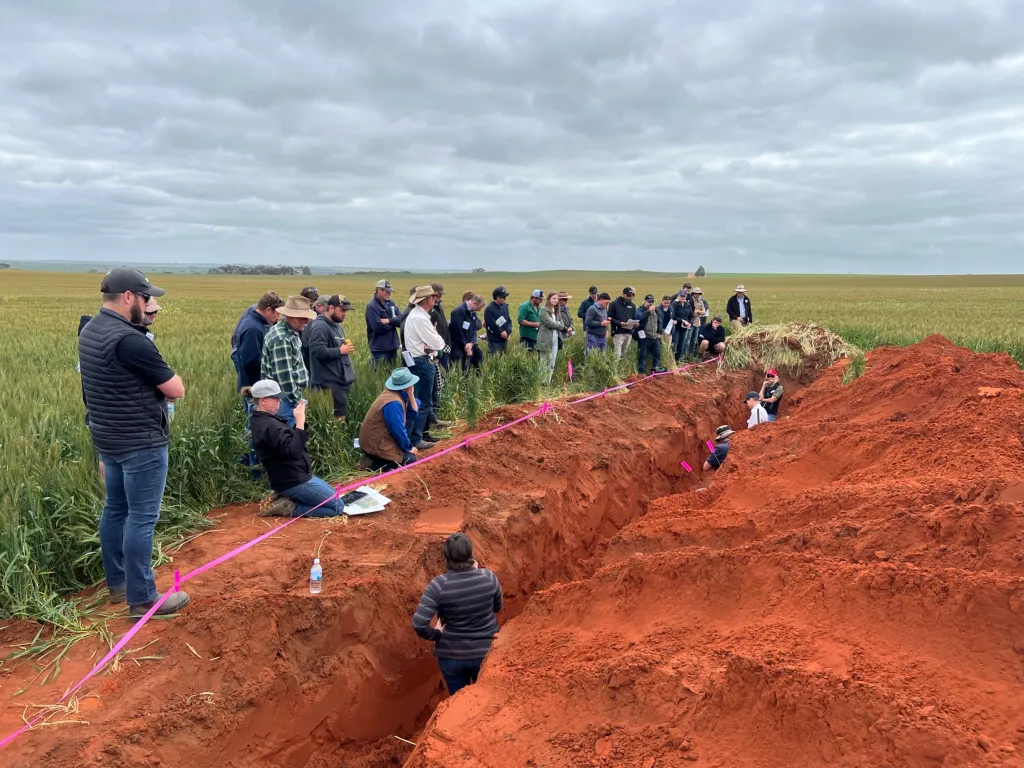Silver Bullets, Step Changes, and One Percenters
By Nathan Craig, WMG Chief Executive Officer
We all love a ‘silver bullet’ in farming—something that comes along and just solves the problem with a minimum of fuss. They don’t come along that often, roughly every 20 years. However, when they do, they allow us to take a huge step forward in the productivity and profitability of our farming businesses.
Looking back over the last 100 years of farming, the major silver bullets were:
- The use of superphosphate to supply much-needed phosphorus for crop growth.
- The introduction of legumes into the farming system for a significant boost of nitrogen (N).
- The Haber-Bosch process for manufacturing urea, which has greatly enhanced crop yields.
- The availability of glyphosate and the adoption of no-tillage practices, which helped address wind erosion and declining soil structure and fertility, now a mainstay of our farming system.
- Addressing trace element deficiencies, which led to a substantial increase in grain yield across Western Australia (WA).
In the past 20 years, we have also seen several step changes in our farming system. These are smaller changes that have accumulated to create significant, localised impacts. Some key developments include:
- Building on no-tillage practices, GPS autosteer was adopted primarily to reduce machine overlap and costs, allowing longer working hours each day without extra effort.
- In the past 10 years, addressing soil constraints has been crucial for many farmers, particularly in the West Midlands region. Practices such as:
- Application of lime to address soil acidity.
- Deep ripping to remove compaction.
- Soil amelioration to combat soil water repellence.
- Arguably, the last significant advancement was the shift to earlier sowing times, which has greatly increased grain yields for most crops, especially canola.

Overall, for farming in general, WA’s farming system is becoming well optimised, despite a few long-term issues in certain regions (e.g., frost impacts on crop yields).
The support networks for farmers have also grown significantly over the past 20 years. Farmers now have access to a variety of consultants, advisors, and machinery manufacturers to meet their diverse needs. This access ensures they have the information and tools necessary to make informed decisions about adopting new farming practices.
However, apart from the advent of automation and autonomous vehicles, the future may see a limited number of ‘silver bullets’. The focus is likely to shift more towards step changes and increasingly on the ‘one percenters’.
‘One percenters’ are the small changes that can be made in a farming business that, over time, can lead to significant impacts on productivity and profitability. A popular quote states that if you could improve by one percent each day for a year, you would be 37.78 times better off. The compounding effect of these ‘one percenters’ is what WMG aims to leverage moving forward. Ross Kingwell (AEGIC, 2019) published an article highlighting the value of one-percenters. In one of his examples, a 1% decrease in costs, a 1% increase in grain yield, and a 1% increase in wheat price resulted in a profit increase of 29%!
As we move forward, WMG will increasingly focus on identifying the ‘one percenters’ that could significantly enhance the productivity, profitability, and sustainability of farming businesses. Projects like the GRDC RiskWi$e initiative directly address this goal. Additionally, several projects completed by WMG in recent years have strengthened our capacity to provide farmers with actionable information to facilitate informed decision-making.

We will encourage our farming community to identify both step changes and one-percenters within their businesses and across the region. We will support them in evaluating and trialing practices and technologies to implement these changes on their farms, striving for informed adoption of new methods. Through these efforts, WMG aims to contribute to the sustainable growth of agriculture in the region.
Read more about the value of one-percenters in Ross Kingwell’s article here.













